Oh how things have changed since 2008, when most of the world was browsing the web via Internet Explorer. It’s no secret that IE has been leaking market share over the past few years, but now we have a pretty visualization that shows exactly how the globe became a little less reliant on Microsoft’s revolutionary web browser.
Ok, “a little less reliant” is putting it a bit mildly. In July of 2008, IE held over two-thirds of the browser landscape (66.87%). Nearly four years later, in June of 2012, IE owned just 32.49% of the share – a figure that puts it in a dead heat with Google’s Chrome browser.
All of these figures come from independent web analytics company StatCounter, who today released their “Evolution of the Worldwide Browser Landscape.” It’s a pretty fascinating look at how the world diversified in terms of how they browse the interwebs.
Check it out below:
And for the lazy, here are the two graphs from July 2008 and June 2012 back-to-back:


Of course, it’s hard to look at this and see anything other than a story of how Internet Explorer lost its mojo – but StatCounter makes a point to say that IE is not giving up browser supremacy without a fight:
IE is not taking Chrome’s challenge lying down. From May to June, IE increased its usage share by two-tenths of one percentage point, the first monthly increase since October/November 2011. On a weekly basis, while Chrome overtook IE in week 20 (14 – 20 May 2012), by week 24 (11 – 17 June 2012) IE had staged a fight-back and was exactly equal with Chrome in terms of browser usage for that seven-day period.
Still, we have to declare that the last four years have been won by Chrome, and it’s not even close. While Firefox, Safari, and Opera barely made any gains (and lost a bit of share in Firefox’s case), Chrome was basically the sole browser stealing all of IE’s pie.





 That info should be of use to content creators and advertisers, not to mention companies like Google, Yahoo, and Microsoft. Of course, as mentioned before, Opera Mini users may not fit into the middle of any bell curve, but perhaps they’ll function as early adopters who forecast trends.
That info should be of use to content creators and advertisers, not to mention companies like Google, Yahoo, and Microsoft. Of course, as mentioned before, Opera Mini users may not fit into the middle of any bell curve, but perhaps they’ll function as early adopters who forecast trends.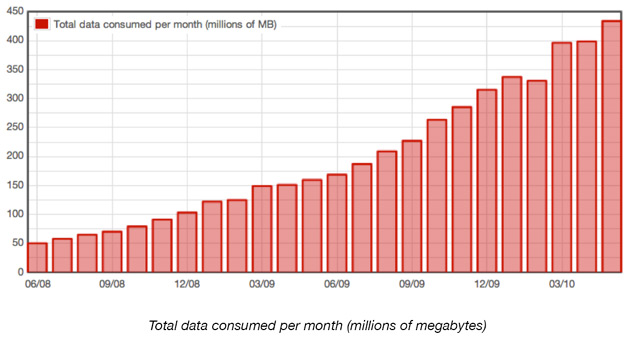

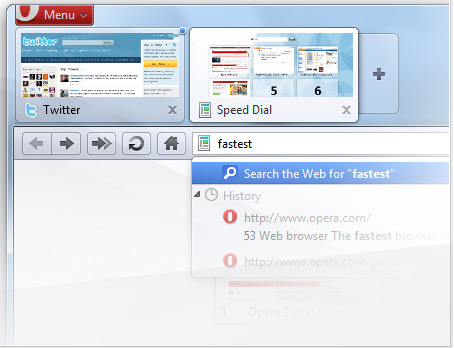 "Opera 10.60 beta is so fast, it will blow you away," says Opera Chief Development Officer, Christen Krogh. "Beyond the speed boost, the latest version of Opera improves on our robust HTML5 support and provides more options for quick and efficient Web search through your preferred search engines. By combining raw speed with intuitive and easy-to-use features, Opera places you among the fastest Internet users on the planet."
"Opera 10.60 beta is so fast, it will blow you away," says Opera Chief Development Officer, Christen Krogh. "Beyond the speed boost, the latest version of Opera improves on our robust HTML5 support and provides more options for quick and efficient Web search through your preferred search engines. By combining raw speed with intuitive and easy-to-use features, Opera places you among the fastest Internet users on the planet."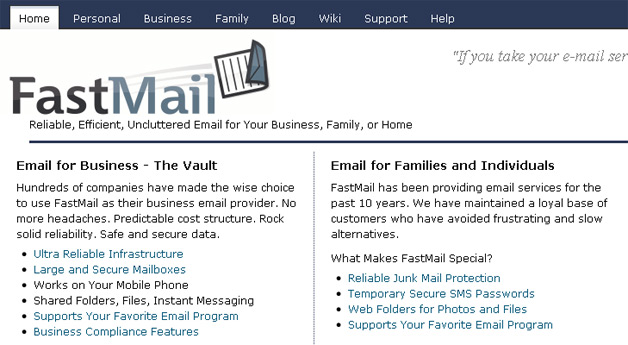
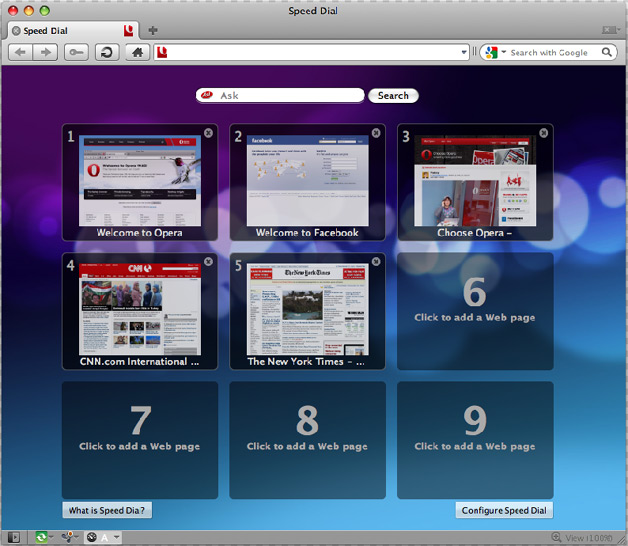
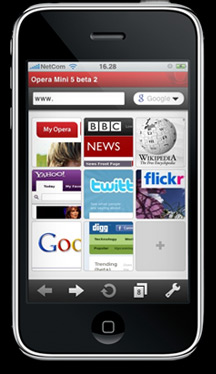 When asked what Opera Mini will be able to offer iPhone users that they haven’t been able to get elsewhere, Opera’s Katrin Jackson tells WebProNews that Opera Mini will provide speed, cost-savings, and usability features like tabs, speed dial, and password manager.
When asked what Opera Mini will be able to offer iPhone users that they haven’t been able to get elsewhere, Opera’s Katrin Jackson tells WebProNews that Opera Mini will provide speed, cost-savings, and usability features like tabs, speed dial, and password manager.